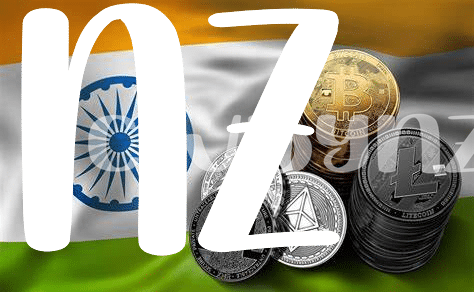Legal Status of Cryptocurrencies in India 🇮🇳

Cryptocurrencies have been a topic of debate in India, with varying perspectives on their legal status. While not classified as legal tender, cryptocurrencies exist in a gray area in terms of regulation. The Reserve Bank of India had imposed a banking ban on cryptocurrency transactions in the past, which was subsequently lifted by the Supreme Court. Despite this, there is no clear framework governing the use of cryptocurrencies in the country. This ambiguity has led to uncertainty among investors and stakeholders in the crypto space. The government has indicated the intention to introduce a bill that could potentially regulate cryptocurrencies, but its stance remains fluid. As of now, individuals and businesses are free to buy, sell, and trade cryptocurrencies in India, albeit without explicit legal protection. The evolving landscape of cryptocurrency regulation in the country underscores the need for a comprehensive and cohesive approach to address the challenges and opportunities presented by this digital asset class.
Regulatory Framework Surrounding Cryptocurrencies 💼
The regulatory landscape surrounding cryptocurrencies in India is a complex and evolving one. As the use of cryptocurrencies continues to grow in popularity, the government and regulatory authorities are actively working on establishing a structured framework to govern these digital assets.
This framework aims to address key concerns such as investor protection, financial stability, and preventing illicit activities like money laundering and fraud. By setting clear guidelines and regulations, it provides a level of certainty and stability for businesses and individuals participating in the cryptocurrency market. This regulatory clarity is essential for fostering trust and confidence in the ecosystem, ultimately supporting the responsible growth and innovation within the cryptocurrency space.
Public Sentiment and Adoption of Cryptocurrencies 💰

Cryptocurrencies have been steadily gaining traction in India, with an increasing number of individuals exploring the world of digital assets. The growing public interest in cryptocurrencies can be attributed to the potential for decentralized transactions and the allure of investment opportunities in this evolving market. As more people become familiar with cryptocurrencies through media coverage and word of mouth, the adoption of digital currencies continues to rise.
This surge in interest has also sparked conversations about the role of cryptocurrencies in the country’s financial landscape. Some view digital currencies as a revolutionary technology that could disrupt traditional banking systems, while others remain cautious due to the perceived volatility and regulatory uncertainties surrounding this emerging asset class. Despite these apprehensions, the public sentiment towards cryptocurrencies in India reflects a mix of curiosity, optimism, and a desire for financial innovation.
Impact of Cryptocurrency on Traditional Finance Systems 💳

The rise of cryptocurrencies has significantly impacted traditional finance systems, ushering in a new era of digital transactions and decentralized financial services. As blockchain technology continues to revolutionize the way we exchange value, traditional banking institutions are facing the challenge of adapting to this rapidly evolving landscape. The transparency and security features inherent in cryptocurrencies are reshaping how financial transactions are conducted, prompting traditional players to explore innovative ways to remain relevant in this digital age.
To learn more about the government stance on the future of cryptocurrencies in Iceland, visit government stance on the future of cryptocurrencies in Iceland and understand how regulatory perspectives are shaping the global crypto ecosystem.
Recent Developments and Future Outlook in India 🚀
India’s cryptocurrency landscape has seen dynamic shifts in recent times, signaling new opportunities and challenges on the horizon. With increasing interest from investors and entrepreneurs, the future outlook for cryptocurrencies in India appears promising. The rise of blockchain technology has paved the way for innovative solutions in various sectors, showcasing the potential for transformative changes in the financial ecosystem. Moreover, the evolving regulatory environment indicates a growing acceptance of digital assets, hinting at a more inclusive approach towards the adoption of cryptocurrencies. As India continues to navigate the complexities of this emerging market, collaborations between industry players and policymakers are key to shaping a sustainable framework that supports innovation while addressing concerns of security and stability. As the country embraces the digital revolution, the integration of cryptocurrencies is set to play a significant role in shaping the financial landscape of the future.
Challenges and Opportunities for Cryptocurrencies in India 🌐

Cryptocurrencies in India face a landscape of both challenges and opportunities. One key challenge is the lack of clarity in regulations, leading to uncertainty for investors and businesses. This ambiguity also makes it harder to implement widespread adoption of cryptocurrencies in everyday transactions. On the flip side, the evolving technology behind cryptocurrencies presents opportunities for financial inclusion and innovation in the Indian market. As the regulatory framework matures and public awareness grows, there is potential for cryptocurrencies to play a significant role in shaping India’s digital economy. Balancing these challenges with the promising opportunities will be crucial for the future of cryptocurrencies in India.
Insert link: government stance on the future of cryptocurrencies in hungary
